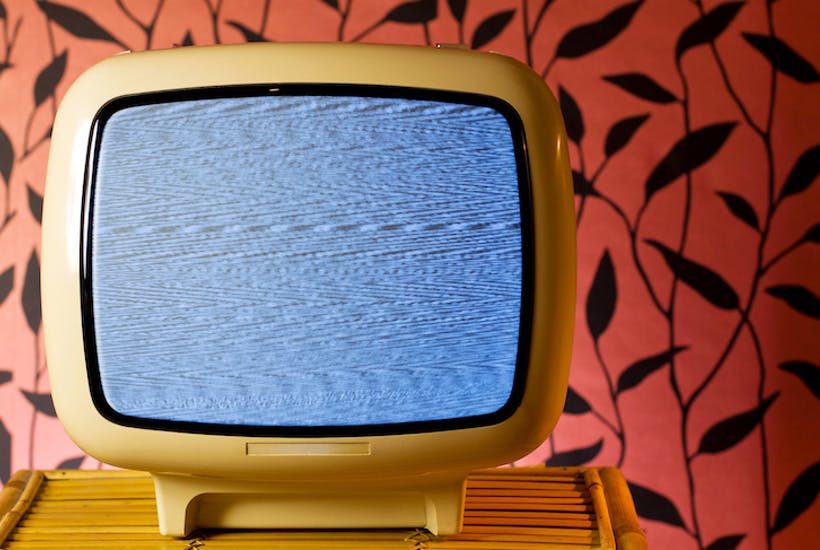I hate to tell you this, but every time you watch television you are being duped. In fact there are only three accurate things you will ever see on television. These are the colours red, green and blue.
Each pixel on a screen can transmit three colours only. If blue alone is illuminated, the screen is blue. And it really is blue.
But TV yellow is a big fat lie.
It looks yellow. But it isn’t really yellow. It’s a mixture of red and green light which hacks our optical perception so we think we are seeing yellow. That’s because humans, indeed all higher apes, are mostly trichromats. We have three different types of cones in the retina, each sensitive to a different part of the colour spectrum. It is from the contrasting signals received from these three types of cone that our brain reconstructs the visible spectrum. A TV needs only to be able to generate three colours in varying relative strengths to convince higher apes that the image is yellow — or lilac or brown. If you wanted to design a television for your dog, you could probably make do with just two colours per pixel. By contrast your pet parrot or tame bee (many birds and insects are tetrachromats, i.e. they have four types of cone) may look at your TV and wonder why dumb humans are happy to tolerate such an crappy, unrealistic picture.
Television is hence not a depiction of reality. It is a species-specific hack which creates the illusion of reality.
Long before the LCD screen, the ancient Greeks grasped this principle. There is barely a straight line in the Parthenon. The floor curves upwards in the middle; the sides bow out; the columns swell in the middle (a trick borrowed by the designer of the Rolls-Royce radiator grille). The Parthenon is not designed to be perfect, but to look perfect to a human standing 100 yards or so downhill.
Now, here’s a thing. If you are a scientist (a physicist or an engineer, say), your job is to reach beyond the quirks of human perception and create universally applicable laws which describe objective reality. Science has duly developed sensors and units of measurement which determine objective measures of distance, time, temperature, colour, gravity and so forth.
In the physical sciences we rightly prefer these to the warped perceptual mechanisms evolution has given us. No one would fly in a plane designed subjectively. It does not matter whether a bridge looks strong: we need to know it really is strong. A problem arises, though, when human sciences — politics, economics or medicine, say — pursue the same objective models, believing them to be the hallmark of a science. In the human sciences, as in TV design, what people perceive may be more important than what is objectively true.
In medicine, the obsession with objectivity leads to neglect of the placebo effect, since it is seen as a ‘mere’ perceptual hack. But if homeopathy, say, leads people to believe they will get better, and this delusion helps them fight infection, what’s not to like? Shouldn’t we be researching this rather than decrying it?
In physics and engineering, objective models usually make problems easier to solve. In economics and politics, objectivity makes things harder. Pressing economic and political issues could be solved easily and cheaply once we abandon universal, species-independent models (such as bogus notions of ‘utility’ or ‘rationality’) for the proper study of evolved human emotional and perceptual traits.
The award of the Nobel Prize for Economics to my friend Richard ‘Nudge’ Thaler is, I hope, an acknowledgment that biology-free economics has run out of road. Meanwhile behavioural science has further still to go.
Got something to add? Join the discussion and comment below.
Get 10 issues for just $10
Subscribe to The Spectator Australia today for the next 10 magazine issues, plus full online access, for just $10.
You might disagree with half of it, but you’ll enjoy reading all of it. Try your first month for free, then just $2 a week for the remainder of your first year.















Comments
Don't miss out
Join the conversation with other Spectator Australia readers. Subscribe to leave a comment.
SUBSCRIBEAlready a subscriber? Log in